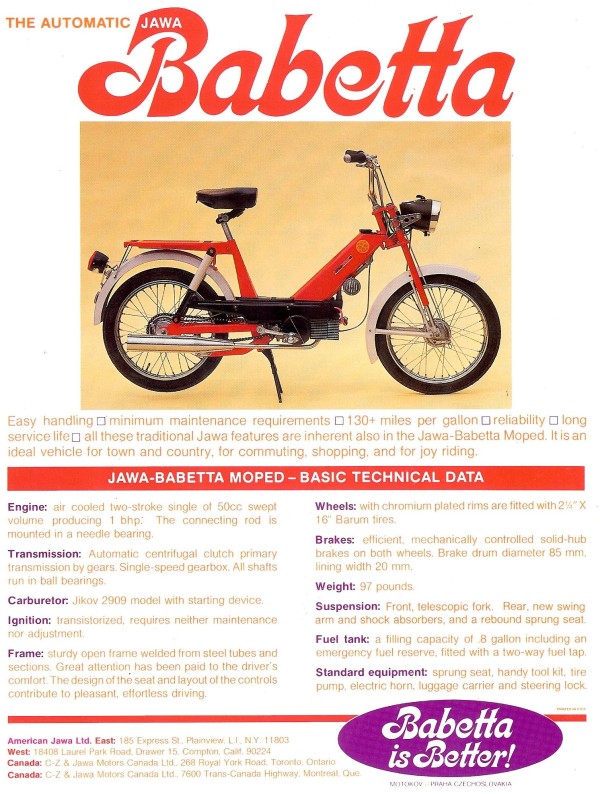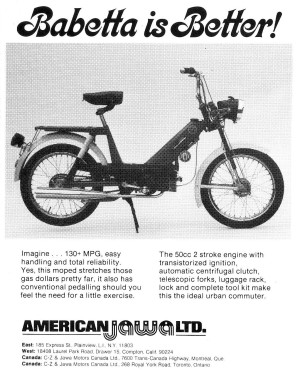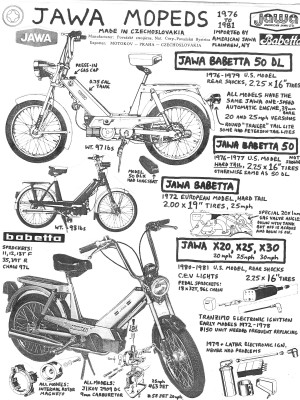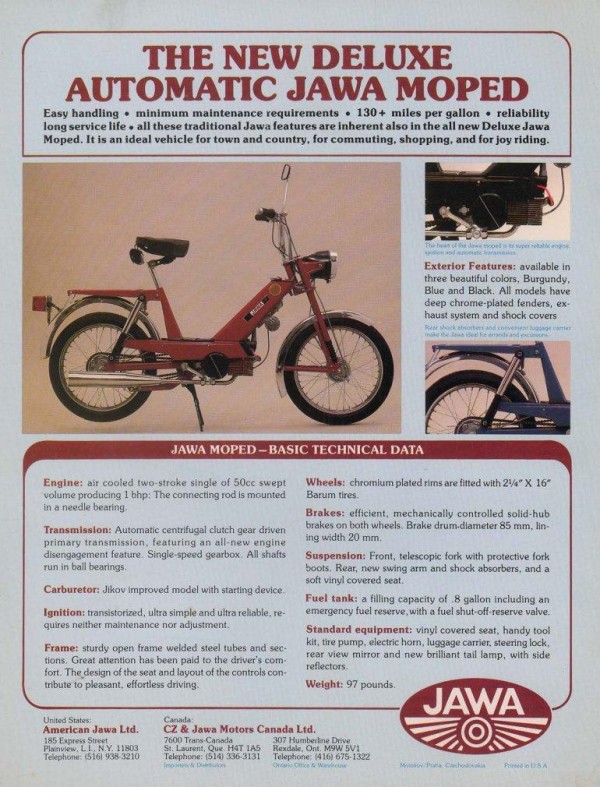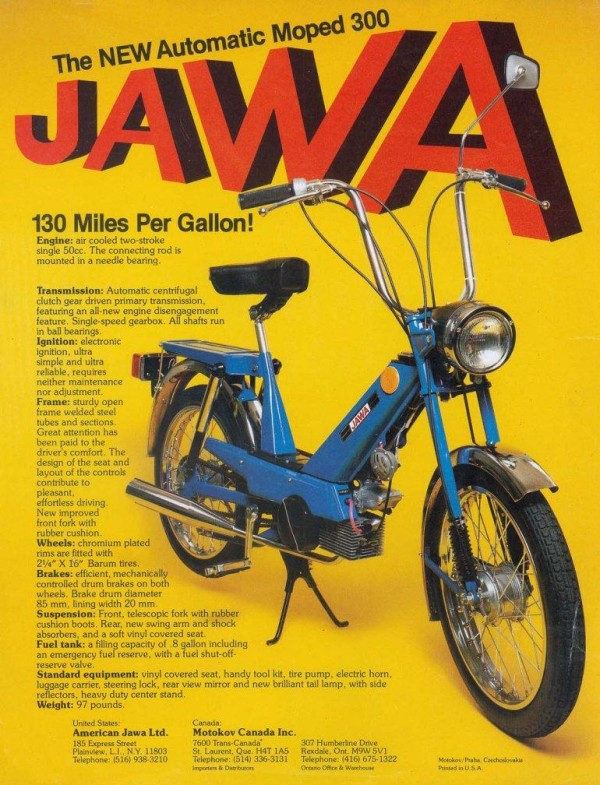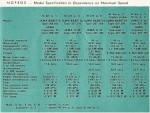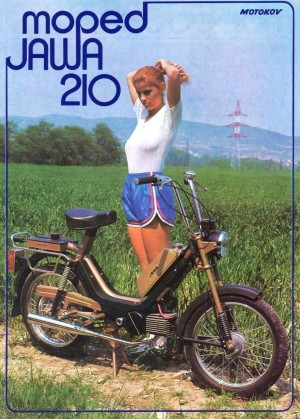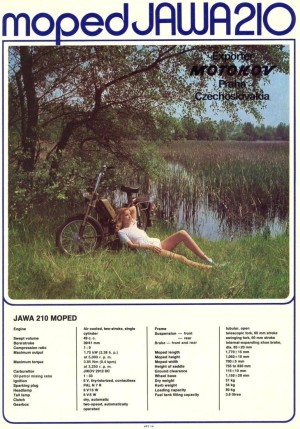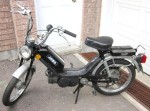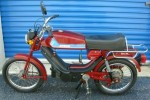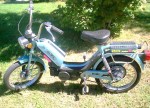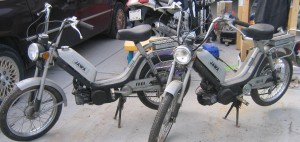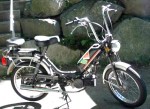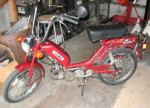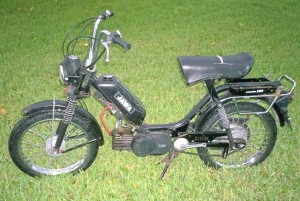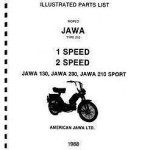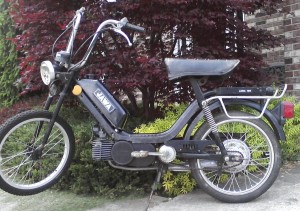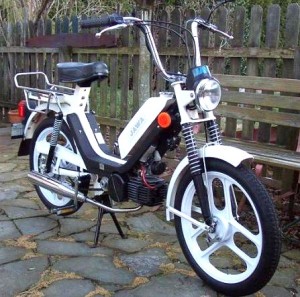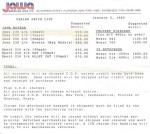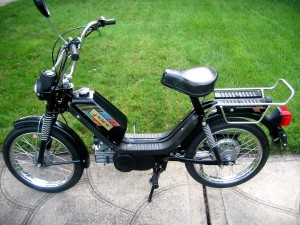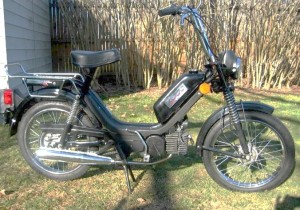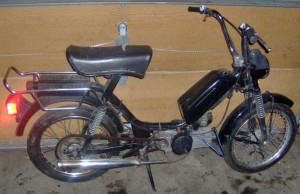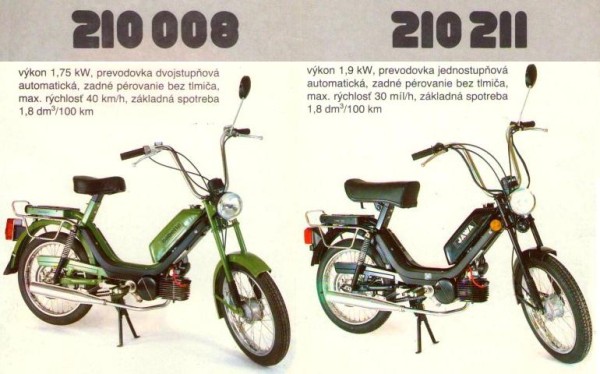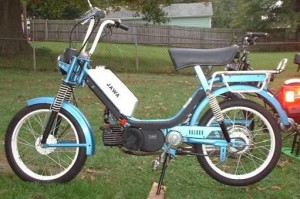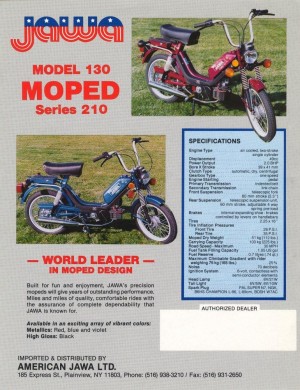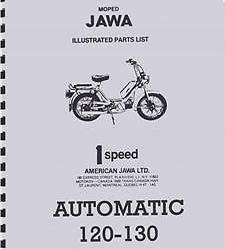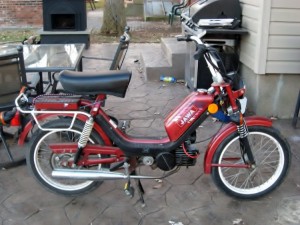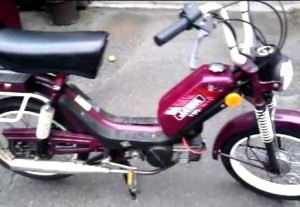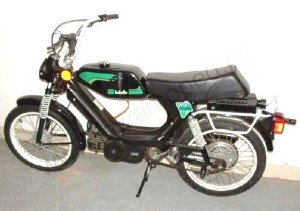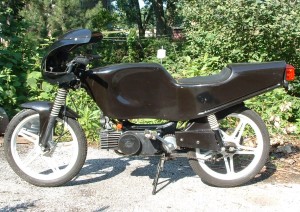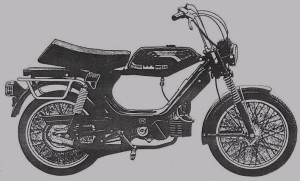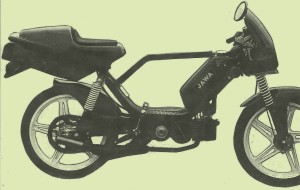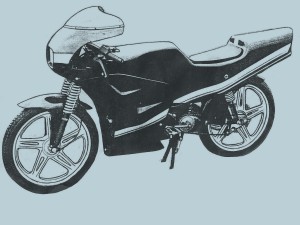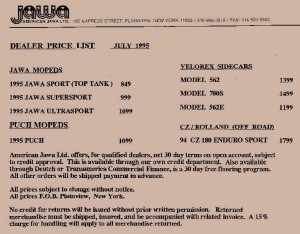Jawa Mopeds (US models)
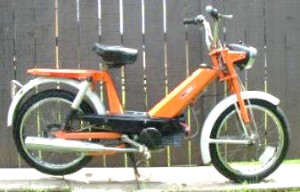
1976 Babetta Transistor 40 (207.011)
orange, 1-speed, 1.5 hp, 25mph (40kmh)
12 tooth front sprocket
Jikov 9mm carb, frame up to 210999
Peterson trailer tail light
thyristor (transistor) ignition
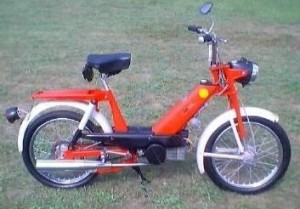
’77 Babetta Transistor 40 (207.011)
red, 1-speed, 1.5 hp, 25mph (40kmh)
12 tooth front sprocket
Jikov 9mm carb, frame up to 210999
Peterson trailer tail light
thyristor (transistor) ignition
These are US models, with front and rear side reflectors, brake light, electric horn, and bigger lights.
![]() The 1970’s US models had Peterson Manufacturing Company (PMCO) lights, made in Grandview, Missouri. The 1980’s and 1990’s had CEV lights made in Italy.
The 1970’s US models had Peterson Manufacturing Company (PMCO) lights, made in Grandview, Missouri. The 1980’s and 1990’s had CEV lights made in Italy.
The “Babetta” and “Transistor 40” stickers were in use from 1975 to 1978. In 1978, starting with frame number 211000, the model number changed from 207.011 to 207.111. The big red “tranzimo” electronic unit became a small black box and a separate coil. The engine stop rotary switch on the top of the headlight was eliminated. There is no engine stop switch. Instead the right thumb operates the decompression lever, that says “engine stop”. The white fenders became chrome. New 1978-79 model names were 50C, 50DL, and 50DLX, but the bikes were labeled with only JAWA on the tank sides.
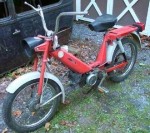
78 Jawa Babetta (207.011)
frame # up to 210999
Jikov 9mm carb, 1.5 hp
25mph, Peterson lights
12 tooth front sprocket
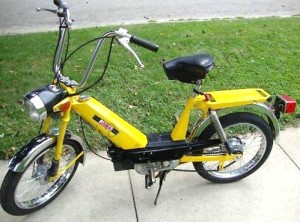
1978 Jawa 50DL (model 207.111)
frame 211000 to 249999
Jikov 9mm carburetor, 1.5 hp
25mph (40kmh), Peterson lights
12 tooth front sprocket
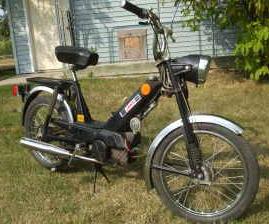
1978 Jawa 50C (207.111)
frame 211000 to 249999
Jikov 9mm carb, 1.5 hp
20mph, Peterson lights
11 tooth front sprocket
Until now the highest speed version was 25 mi/h (40 km/h). In 1979-80 the 50DL and 50DLX models had Bing 1/12/167 or 1/12/325 (12mm) carburetors, instead of Jikov 2909 (9mm). These were rated to go 30mph. You can tell these from a distance by the grey flat top air box that points forward just above the spark plug. That air box was originally rear-facing, for 1950’s-60’s Sachs 502 series mopeds. See more in Bing Carburetor. Scroll down to “Bing Jawa”.
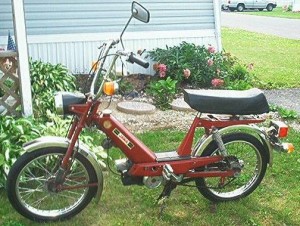
1979 Jawa 50DLX (207.300)
frame 250000 – 349999
Bing 12mm carb, 30mph
Peterson lights, long seat
13 tooth front sprocket
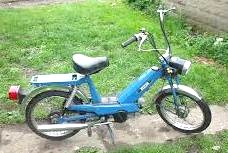
1980 Jawa 50DL (207.311)
frame 250000 – 349999
Bing 12mm carb, 30mph
Peterson lights, solo seat
13 tooth front sprocket
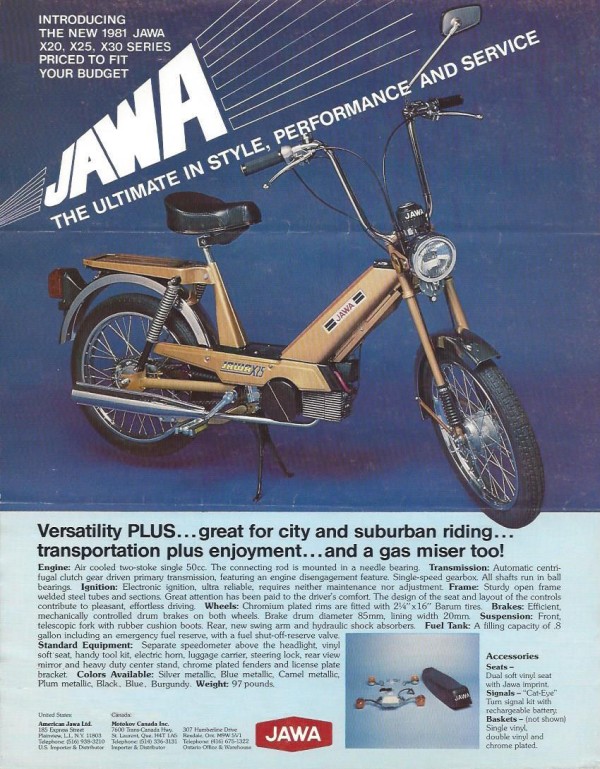
This 1981 Jawa Flyer for USA and Canada lists the 1980-81 colors: silver metallic, blue metallic, carmel metallic, plum metallic, black, blue, burgundy.
In 1980-81 the 30mph models went back to a Jikov carburetor, but a bigger Jikov 2912 (12mm). New model names and specs:
X30 (207.385), 30mph, 13T, 2.3 hp, $460
X25 (207.385), 25mph, 12T, 1.8 hp, $430
X20 (207.377), 20mph, 11T, 1.5 hp, $430
Trans. 25 (208.450), 16mph, 10T, 1.5hp
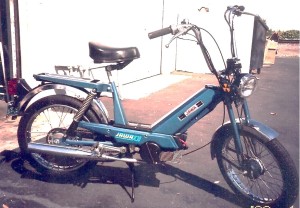
1980 Jawa X30 (207.385)
1-speed, frame 350000 and up
Jikov 12mm carb, 30mph
CEV lights, solo seat
13 tooth front sprocket
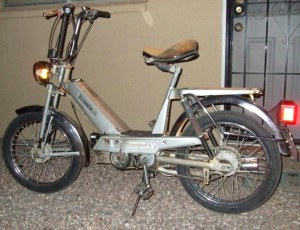
1981 Jawa X30 (207.385)
1-speed, frame 350000 and up
Jikov 12mm carb, 30mph
CEV lights, solo seat
13 tooth front sprocket
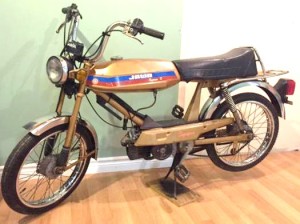
1982 Jawa Supreme 3 (207.392)
frame 350000 and up, 1-speed
Jikov 12mm carb, 2.3 hp, 30mph
CEV lights, top gas tank
13 tooth front sprocket
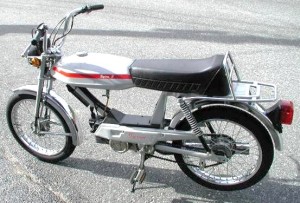
1982 Jawa Supreme 2 (207.394)
frame 350000 and up, 1-speed
Jikov 12mm carb, 1.8 hp, 25mph
CEV lights, top gas tank
11 tooth front sprocket
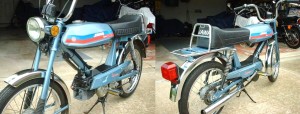
1982 Jawa Supreme 3 (207.392)
frame 350000 and up
one speed, gear and chain drive
square cylinder fins, 2.3 hp, 30 mph
CEV lights, top gas tank
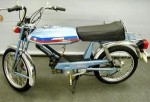
1983 Supreme 2 (207.394)
1 speed, gear/chain drive
square cylinder fins, 25 mph
CEV lights, top gas tank

1983 Supreme 3 (207.392)
1 speed, gear/chain drive
square cylinder fins, 30 mph
CEV lights, top gas tank
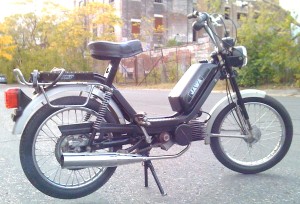
1984 Jawa 210 (210.230)
two speed, belt/chain drive
rounded-square cylinder fins
CEV lights, step-thru tank
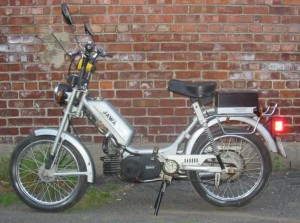
1985 Jawa 210 (210.230)
two speed, belt/chain drive
rounded-square cylinder fins
CEV lights, step-thru tank
The Jawa model 210 came out in 1983-84. It featured a redesigned frame and engine, with more torque for faster starts and better hill climbing. For 2 or 3 years, the engines were two-speed. Later years had one speed engines. The one-speed engine came in 20mph (210.120) or 30mph (210.130) versions. The 210.230 two-speed 30mph engine had three automatic clutches, one to start the engine, one to get going from a stop, and one to shift gears. The 30mph “210” versions (210.130 and 210.230) produced 2.1 horsepower (down slightly from 2.3).
Here is a link to the 1984 Jawa 210 Parts List from POVAŽSKÉ STROJÁRNE ZVL, branch works POVAŽSKÁ BYSTRICA.
1984 Jawa 210 VIN is TLJ210036EK02xxxx
In 1985 the production plant was moved from Povážské Bystrica to to Kolárovó, Slovakia. Not all of the equipment and expertise survived the move. There were some quality issues after 1985. There are many 1986-88 one speed models (210.130) but not many two speeds (210.230). So it seems like they made 210.130 models mostly during the first year or two at the new plant.
1989 American Jawa Product List
210.130 (1-s 30mph) $503
225.120 (1-s 25mph) $535 (kick start)
210.230 (2-s 30mph) $535
210.230 (2-s 30mph) $680 Breeze
210.130 (1-s 30mph) $633 Sport
210.220 (2-s 25mph) $670 Cat
210.230 (2-s 30mph) $670 Alley Cat
Velorex Sidecar 562 $1100
Velorex Sidecar 700 $1300
CZ motocross 250cc $1800
CZ motocross 400cc $1900
Until now all Jawa mopeds had pedals because they were motor asisted bicycles. But as Germany dropped the pedal requirments for mofas (25 kmh) in the early 1990’s, other countries and states followed. To satisfy the demand for “mokicks” aka “nopeds”, Jawa introduced the 225 model in 1990-1991.
This 1991 sales brochure lists all the 210 models, including 215, 225, 226. They are all one speed engines, with different power levels, except for the 215.000 and the US model 210.211. Here is the link: jawamoped.com
By the 1990’s all Jawa mopeds all had CDI ignitions. No more thyristors!
Notice how the 1992-1995 Jawa mopeds have white powder coated rims, rails, handlebars instead of chrome. That is a way to hide flaws or rough textures, and is easier and cheaper than chroming.
One of the last dealer price lists of American Jawa had 3 Jawa’s and 1 Puch. The Puch Korado was made in the old Povážské Strojárne (PS) (Povaska machinery building) near the city of Povážské Bystrica in north-central Slovakia. At the same time, 1994-95 Jawa Sport, Supersport, Ultrasport were made in the small agricultural town of Kolárovó. While the Puch Korado was made with Piaggio top notch equipment and modern methods, the last few years of Jawa’s were made using obsolete, worn-out equipment with not enough expertise and concern for quality.
Starting with the fall of socialist economies in 1990, and the privatization of industries, Kolárovó faced increasing costs, and decreasing market demand, as Slovakians were free to purchase from outside the country. In 1993 Czechoslovakia was split in half. Suddenly Kolárovó’s exporter, Motokov, was in Czech Republic, a foreign country, as well as some suppliers. All of these things combined to cause the bitter end of Jawa Babetta mopeds. Read the full history on John Woods awesome website, jawamopeds.com.

